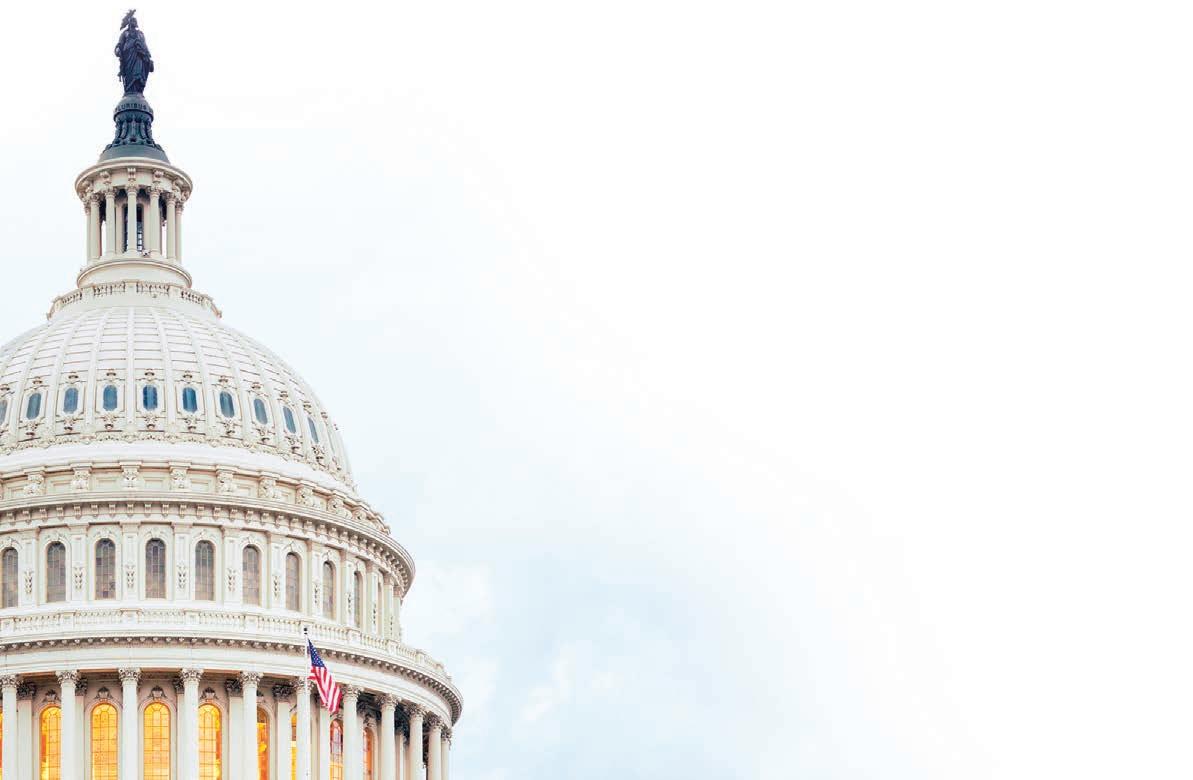
3 minute read
How a Union saved public transit
LEGISLATIVE AGENDA How a Union saved public transit
COVID-19 brought the world to a crashing halt in March, and transit systems and workers across North America were, of course, immediately impacted. Public officials and transit agencies which normally encourage the public to take the bus or train instead of driving, suddenly told passengers to stay home to stop the spread of the virus.
Farebox, tax revenue plummet Riders were urged to avoid transit unless it was absolutely necessary. As a result, farebox revenue plummeted. In addition, with restaurants and retail stores shuttered, local tax revenues normally directed to transit dried up quickly.
Public transit was in a financial crisis like never before. Millions were about to lose their lifeline to the grocery store and pharmacy. Hundreds of thousands of transit workers were at risk of losing their jobs, which had already become extremely dangerous because their employers could not afford personal protective equipment (PPE) like masks, gloves, and hand sanitizer.
Legislation was desperately needed to respond to the pandemic, and Republicans, led by Senate Majority Leader Mitch McConnell with support from President Trump, introduced a bill which included no funding for public transit.
ATU steps in That’s when ATU stepped in, calling on Congress to provide substantial emergency operating assistance to transit systems. “We fully realize that there is currently an endless line of industries looking for a federal bailout. Please know that our so-called ‘choice’ riders are gone,” International President John Costa wrote to Congressional leadership.
“If you are riding the bus or train nowadays, you are transit dependent,” Costa continued. “You are probably poor, and don’t likely have a car of your own. You need transit to get to the grocery store, the doctor, and the pharmacy. Without the bus, these people would be stranded at home. That’s why public transportation is considered an essential public service. Please act immediately to save this lifeline in our communities.”
Thousands of members write Congress Within a span of just three days, thousands of ATU members answered the call from the International Union, writing letters, pleading with their individual Members of Congress to save their jobs and their passengers’ access to essential services.
Transit industry management initially called on House and Senate Leaders to provide $12 billion for transit, and then within days upped the “ask” to $16 billion. Unsatisfied, Costa called on his home state Senator, Robert Menendez, D-NJ, urging him to shoot for at least $25 billion nationwide so that large transit systems would get their fair share without depriving small and medium sized systems of the aid they needed to keep workers on the payroll.
Three days of intense negotiations followed. In the end, thanks to Menendez; Senate Democratic Leader Chuck Schumer, D-NY; House Speaker Nancy Pelosi, D-CA; and other Democrats, the final bill, named the Coronavirus Aid, Relief, and Economic Security (CARES) Act, was agreed upon, and it included the $25 billion for transit sought by ATU.
Funding can go toward paying workers Unlike traditional federal transit funds, which generally go toward capital expenses, CARES Act funds are for operating aid to keep workers on the payroll.
Operating and maintaining buses and trains safely, of course, is another challenge, and ATU is grateful that CARES Act funds may be used for the purchase of PPE and cleaning supplies that have been in short supply throughout the nation’s transit systems.
While more than 40 million Americans have filed for unemployment since the pandemic began, ATU was able to keep layoffs down through political action and by showing the world the true meaning of “essential” workers. v










